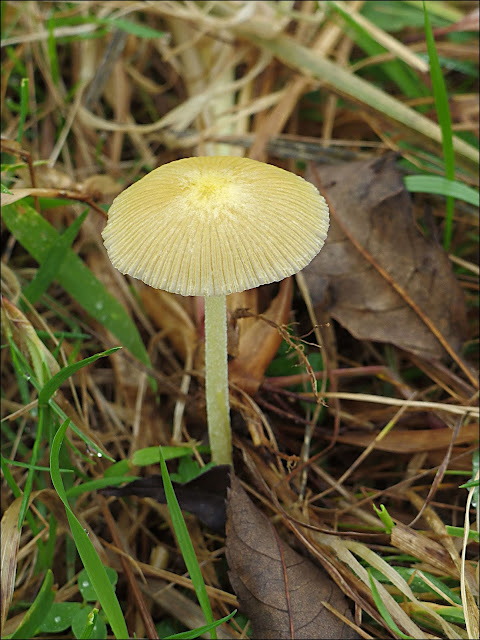Our travels today take us to Croydon. No, not the one in south London, but a tiny village just a few miles from my home in Cambridgeshire. We'll visit the small, tumbledown church and learn something about two of the families who lived here in the past. First the church:
The tower appears to be held together by iron ties and the rest of the church seems to be a hodge-podge of materials and styles.
It's not just your eyes, that pillar really is leaning at that crazy angle. "That's all on the huh", as they'd say in Norfolk, meaning it deviates somewhat from the perpendicular. I've been in some rickety-looking churches in my time but this one certainly is a test of your faith!
It's a plain, workaday building which, whenever you visit, always seems to be in the middle of urgent major repairs. You'd expect no one but farmers and artisans to be buried here but, no, there's a plaque on the wall explaining that beneath these uneven floors lie the remains of three men called Sir George Downing. Even they would feel nervous if they could see the state of the stonework above their heads!
The first Sir George was born in about 1624 and rose to become a major figure in the politics of those troubled times. He is generally regarded as the man who brought about important and much-needed reforms in the nation's finances. He was responsible for the acquisition of New York from the Dutch and amassed a huge fortune for himself. Like anyone who survived these times without losing his head or at least his job he made plenty of enemies who labelled him a miser, a turncoat and a spy.
Oddly for someone who had risen from relative obscurity to great power and wealth, there is no grand monument to him in the church. But he is remembered in the name of Downing Street in London, home of the British Prime Minister.
The second Sir George was a civil servant who further enhanced the family fortune. He was the father of the third Sir George but was considered an unsuitable parent (?) so the young George was brought up by an aunt who arranged for him to get married at the age of 15 to his 13-year-old cousin. He too became a politician and built up a huge estate based on Gamlingay Park in Cambridgeshire.
It was when he died, childless, in 1749 that things get interesting. He left a complicated will which left his vast estates to his cousins but only if they had children. Failing this the money was to be used to found a new college in Cambridge. Well, those cousins did die childless, but that didn't prevent their wives and other interested parties contesting the will. Litigation dragged on for decades much depleting the fortune, though eventually the new college, Downing College, was built, with what remained of the money, in 1800.
So now on to our second family:
In 1843 the vicar of Croydon began to compile notes on his flock, all of whom were a far cry from the grand Downing family. Here's what he had to say about some of them:
"John and Bathsheba Hagger
He can't read. She can a little. He works for Mr Ellis".
"They were married here and their children Christened in Croydon Church. Mrs Hagger is a very respectable woman and is our washerwoman.
1. Emma Hagger, aged 18. Can read.
2. James Hagger, aged 15. Can read, a wild lad.
3. Jane Hagger, aged 12. In the Sunday School, a very
sharp, clean girl and well behaved".
"Emma had a child by a man from a nearby village about a year since, and expected to marry him, but he deceived her. Saving this, she is a very well conducted young woman and a clean good servant, and has been much afflicted at her misfortune, and I believe on proper grounds".
"Richard Hagger, brother to John Hagger, - He is aged and disabled in one hand, very rarely attends church, and is a rough subject".
"James and Biddy Hagger - They can't read. He is much given to drinking, and also has a son by his first wife.
Biddy is an Irish Woman and, as far she knows, a Roman Catholic. She has a son and a silly daughter of the name of Nelson, by a former husband".
"William Hagger, son to James by a former wife, aged 26, is a sad drunken fellow".
Why this obsession with people called Hagger? As some of you already know, that's my name - John Hagger. So I asked my cousin Julie, who is knowledgeable about such matters, if they were related to us. Here's her reply:
"It seems very likely that we are related to the Haggers mentioned in these notes although our William's descendants moved away to Alconbury and Bourn. There is another name in there you might like to look at again though - William and Ann Pearce; they are our 3x great grandparents. Their daughter Mary (who didn't actually have a "baseborn son", it was her sister's) married Edward Hagger of Bourn and they were the grandparents of our grandfather Ernest!"
So there you are - "sad drunken fellows" and "rough subjects" among my ancestors, but not, as far as I'm aware, any turncoats or spies.
Take care.


















































